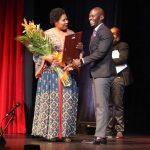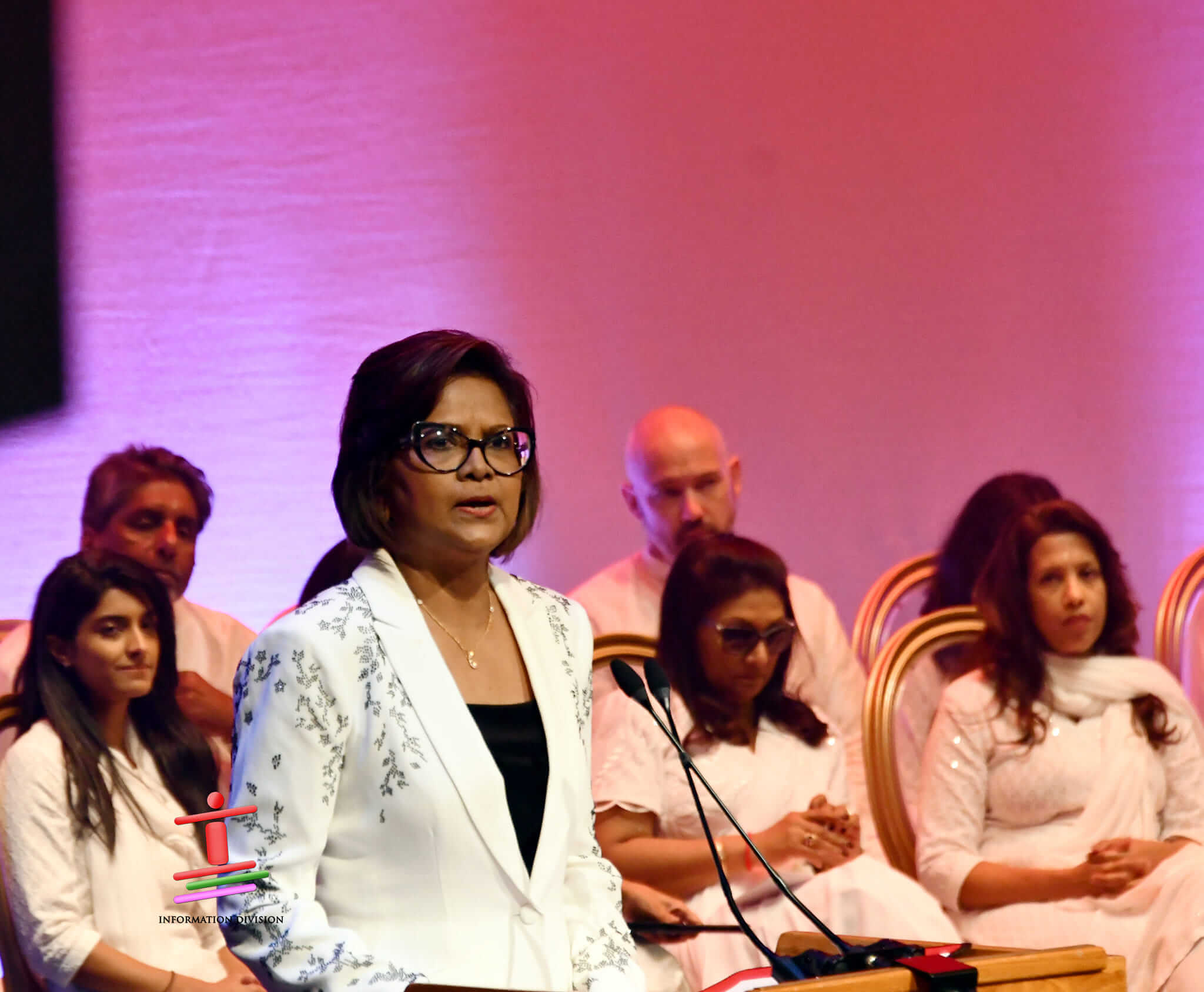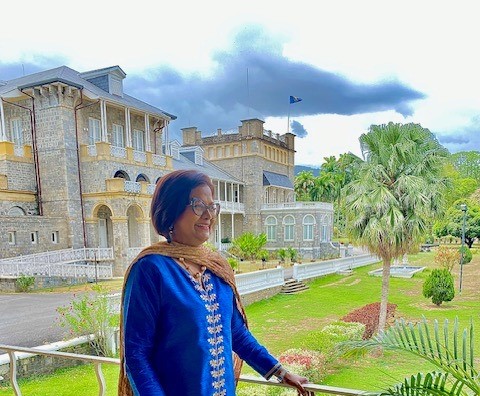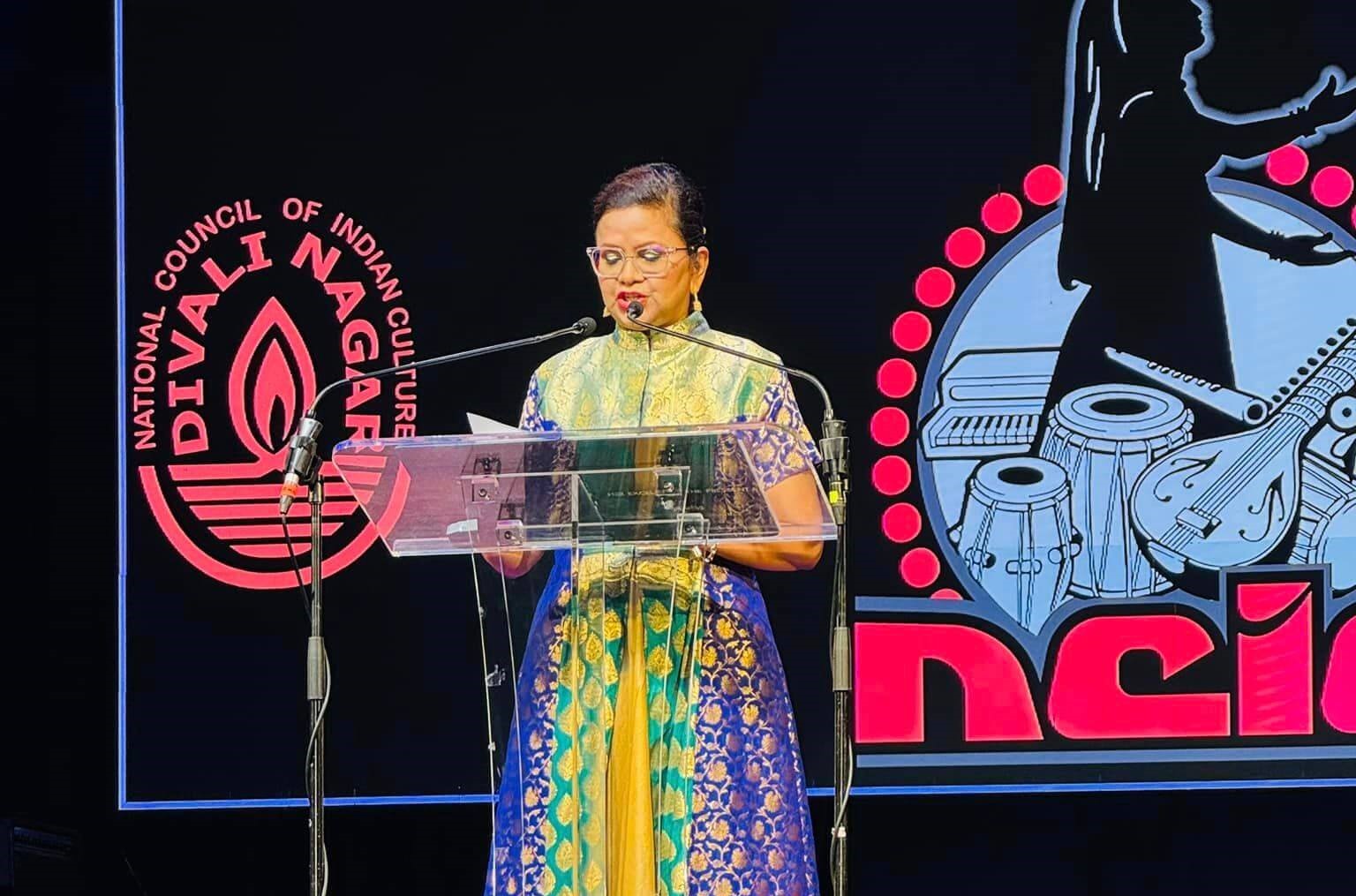Excerpts from an Address by Her Excellency Paula-Mae Weekes, ORTT, to the TRINBAGO UNIFIED CALYPSONIANS ORGANISATION (TUCO) on the occasion of its 25th anniversary and Annual Calypso History Month Gala 2018 (28/11/2018)
Good evening
Even as we gather to celebrate this significant milestone in the history of the TRINBAGO UNIFIED CALYPSONIANS ORGANISATION, (TUCO) the calypso fraternity and nation continue to reel from the loss of three bastions of the calypso art form in the short space of just two months. Shadow, the Original De Fosto Himself and Brother Superior, each a legend in his own right, represented the very best that calypso has to offer. None was a flash-in-the-pan, they composed their own lyrics and music and brought their unique insight to our state of affairs. Additionally, “Supie” laboured for over 25 years to ensure calypso’s place on the air waves, in that respect he was like a one-man department of TUCO.
I salute their legacy and trust that every effort is being made to ensure that they do not become mere footnotes to calypso history; that would be a grave injustice given the importance of kaiso to our heritage and identity.
Calypso music embodies our nature as a people, expressing the highs and lows of the human experience. When we listen to calypso, we hear echoes of ourselves. As the saying goes, “By calypsos our stories are told.” From the griots of the sugar plantations to the bards of the calypso tents, no topic is off-limits. Calypso has long been used as a medium for political rebellion, social commentary and the recounting of tales of passion and naughty escapades. Calypso’s offspring, and sometimes rival, soca, is an up-tempo evolution of the artform, often focussing more on its rhythm than on lyrics.
Preserving calypso entails ensuring that each successive generation develops an appreciation for the genre. I can appreciate that this might be an uphill task with cultural shifts towards soca and dancehall and waning public interest in calypso, but without the necessary action, we risk the loss of a cardinal aspect of our history.
I encourage you to take the fight to our nation’s schools. Make the argument that teaching methodologies can be enhanced by the use of calypso both in respect of traditional subjects like Language, Literature and History and the less traditional like Life Skills, Anger Management and Coping Mechanisms. Imagine a Poetry class analysing the lyrical heights of Phillip My Dear – “a malodorous urchin on top of a bed perching like a cockatoo” or a History class recognising our entry into Olympic annals through Maestro’s Gold or studying local history with the visit to Trinidad of the Graf Zeppelin in 1933. Black is Beautiful a master class in self-esteem. Little Black Boy and Yuh Looking for Horn, timeless cautionary tales. Our young men could learn valuable lessons from the study of Zandolie’s peaceful, reasoned approach to getting from Millicent an explanation about her man family. He was heedful of not breaking her jaw or tangling with the law. Or from the patient request of Selwyn for an answer as to why strange slippers were under his bed. There are lessons for young girls too, for example Machel’s 2018 Take it Slow. We can go on and on but I think the point has been made.
TUCO must make use of every opportunity to showcase the talents of your members and create opportunities where none exist. I often complain that there is no ongoing forum where one can take a visitor to enjoy the sweet melodies of calypso and soca at any time during the year. Calypso should be made into a tourism product with regular, year-round performances that can be advertised as part of our tourism drive.
Maybe it’s time to re-imagine the calypso tent. Perhaps it can become a permanent, purpose-built structure with opportunities for teaching all aspects of the art form, including mentorship of young trainees, providing recording facilities as well as an adaptable space to accommodate audiences of varying sizes. Such initiatives would require expertise, some of which may lie within TUCO and where it does not, TUCO may want to consider empowering your membership through sponsorships to the necessary academic institutions. These initiatives can provide your membership with additional sources of income, especially out of the traditional season. One would hope that once such a project is up and running, it would serve to reduce TUCO’s reliance on government subventions.
All of this requires you to be a highly professional organisation, able to make your way in the world of finance, business and law, among other disciplines. I note with pleasure TUCO’s collaboration with UWI-Roytec earlier this year to launch a Certificate in Business Entertainment which is intended to provide the skills necessary for a successful career in music.
TUCO has provided faithful, valuable service to the calypso fraternity and by extension, the national community over the last 25 years. We are grateful for the commitment, dedication and hard work of the many individual members that have contributed to its longevity. But much has changed since its inception, and in order to remain true to its purpose, TUCO must become a force to be reckoned with, developing into an adequately and appropriately staffed professional institution. This will cost money and its membership must be prepared to dip into its pockets to build the organisation. As they say, “there ain’t no such thing as a free lunch.”
TUCO, there has been a lot of talking, thinking and planning; can you make your 25th year a year of action? You have every right to celebrate your achievements, reflect on the enduring role of calypso, protect the legacy of your stalwarts and affirm calypso’s place in our literary tradition, now act; give birth to all of those ideas you have gestated for the last quarter century. Let us see the tangible results of your stewardship.
Happy Silver Anniversary and may you celebrate many, many more.
Long live calypso!
Thank you.
- Calypsonian Devon Seales escorts Her Excellency upon her arrival at TUCO 25th Anniversary celebrations.
- Fittingly, Funny performed his memorable 25 Years Have Gone ditty at TUCO’s 25th Anniversary celebrations.
- Her Excellency was presented with flowers and a commemorative plaque on behalf of TUCO by Devon Seales.










